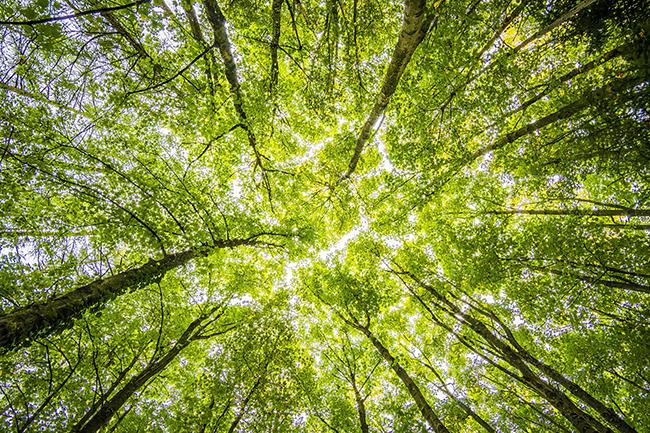Forests of the Czech Republic will reduce afforestation by a fifth to 14,000 hectares
The state enterprise Lesy České republiky (Czech Forests) will reduce the area of afforestation this year by a fifth to about 14,000 hectares from last year's 17,200 hectares. The reason for this is the end of the bark beetle calamity and a significant reduction in the harvesting of bark beetle wood, which reduces the area for forest regeneration. The share of natural forest regeneration is expected to rise to an all-time high of 30 percent this year, the company's spokeswoman Eva Jouklová said today. Forests of the Czech Republic manage almost half of the country's forests.
The company set a record for reforestation in 2021, when it restored about 22,000 hectares of forest and planted 90 million trees. Since then, reforestation areas have been declining. The bark beetle calamity in the Czech forests broke out in 2018. It peaked in 2019 and 2020. In the last two years, the Forest Enterprise has gradually returned to normal management.
The state forests have already reforested most of the strips after the calamity. Between 2019 and 2023, the CR forests planted 381 million seedlings, of which 253 million were deciduous trees. In total, they have reforested 88,000 hectares. On 23 to 27 per cent, foresters have favoured natural regeneration from seeds and fruits of mother trees.
This year, the Forestry Department plans to plant nearly 56 million seedlings after last year's 69 million trees. Of these, 37 million will be deciduous trees this year. Thanks to warm weather, foresters started planting in early March, a month earlier than in other years. So far they have planted 33 million seedlings.
"This year, we will renew the largest area in South Moravia, Vysočina and North Bohemia," said Dalibor Šafařík, Director General of the Czech Forests. The foresters are trying to plant species-diverse forests, selecting a mix of tree species according to the conditions of a particular location. "We plant mostly beech, oak, maple, pine, spruce and fir. We combine trees in such a way as to ensure the quality, resilience and production sustainability of the forests," Šafařík said.
Last year, as the bark beetle calamity subsided, the Forest Enterprise reduced timber harvesting by 16 per cent to 7.77 million cubic metres from 9.22 million in 2022. This brought harvesting to the level before the bark beetle calamity after five years. The company has not yet published its financial results for last year. It posted a gross profit of CZK 4.63bn for the first three quarters of last year.
Source: Lesy České republiky and CTK









